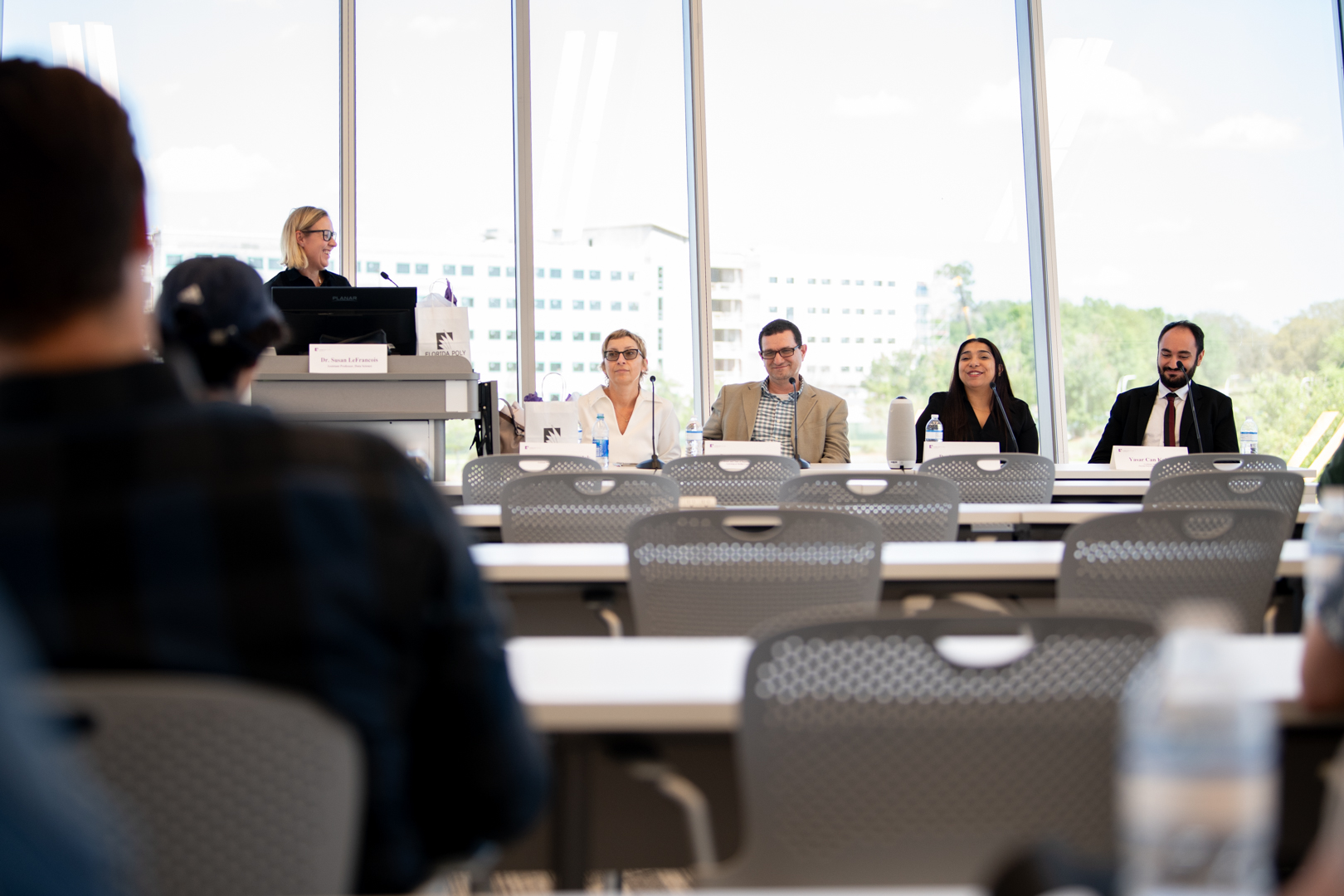
Dr. Susan LeFrancois (left), an assistant professor of data science at Florida Polytechnic University, moderates a panel discussion about the intersection of artificial intelligence and healthcare on Thursday, March 28 at the University. Panelists at the event hosted by Florida Poly’s Office of Public Policy Events were, from left, Dr. Aleksandra Karolak, assistant professor of machine learning at Moffitt Cancer Center; Dr. Issam El Naqa, professor and founding chair of the Department of Machine Learning at Moffitt Cancer Center; Dr. Youstina Bolos, podiatric surgeon at Florida Orthopaedic Institute; and Yasar Can Kakdas, a Florida Poly graduate student.
Leaders in healthcare and cutting-edge technology led a public panel discussion about the intersection of artificial intelligence (AI) and healthcare at Florida Polytechnic University on Thursday, March 28.
The event, hosted by the University’s Office of Public Policy Events (OPPE), was held in the Barnett Applied Research Center and was moderated by Dr. Susan LeFrancois, assistant professor of data science at Florida Poly.
Among the panelists was Dr. Issam El Naqa, professor and founding chair of the Department of Machine Learning at Moffitt Cancer Center, whose research focuses on AI applications in cancer. He said making sense of the vast amount of patient-related information now available to researchers like him is a huge undertaking when using traditional techniques.
“When you start dealing with very complex data like this, this is where AI shines,” he said.
Joining him on the panel were Dr. Aleksandra Karolak, assistant professor of machine learning at Moffitt Cancer Center; Dr. Youstina Bolos, podiatric surgeon at Florida Orthopaedic Institute; and Yasar Can Kakdas, a Florida Poly graduate student.
Bolos said she uses AI in her daily work as a physician when building patient visit notes.
“The idea behind our implementing AI technology was that we see a lot of patients with complex disorders, and we want to make sure we’re not missing anything they’re telling us,” she said. “AI helps make sure the patient’s voice is heard in the dictation.”
This not only makes the record more accurate but also saves on the employee costs to do the job manually, Bolos added.
However, the use of AI also has its shortcomings, the panelists said. These include limitations of AI models that stem from insufficient or incomplete data on which the model is trained.
Bolos said one of the challenges she faces in her practice is the need to override the AI’s patient diagnosis, which is often incorrect.
“That takes my time and causes inefficiency and frustration there,” she said. “We hope eventually technology will match the right diagnosis, but it’s not there yet.”
Contact:
Lydia Guzmán
Director of Communications
863-874-8557